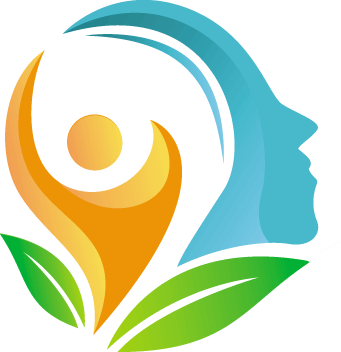by Christelle Marchetti | on April, 1st 2024 |
When we suffer from physical pain or illness, we often go to the doctor for a medical diagnosis. Don’t we?
When we’re not feeling well morally, we turn to a psychotherapist. When we have one nearby and available.
Each pathology has its own specialist who analyzes the symptoms and suggests a suitable treatment. But if the body is inseparable from the mind, do you also take care of your emotional health? When you look at your life in the present moment, aren’t there also difficulties that have been going on for some time and that you’re currently going through? What if holistic therapy, in conjunction with other practices and medicines, could help you deal with everyday ailments and maintain better health over the longer term? Would you like to gain a better understanding of this therapy and its benefits?
What is Holistic Therapy?
Holistic therapy comes from the ancient Greek etymology :
- therapein = to heal
- holos = whole.
Holistic practice is therefore concerned with the human being as a whole, a whole that cannot be divided if it is to be healed.
Today’s scientific developments and traditions enable us to perceive the human being as a more or less integrated and coordinated whole of different levels of vibratory organization:
- the dense, visible body,
- the energetic body (networks of meridians, chakras…), a mediator between matter and the psyche, which includes the emotional sphere and the mind.
These four bodies (physical, energetic, emotional and mental) are intimately linked, yet each retains its own functions and laws of operation.
Holistic therapy aims to establish harmony of body and mind through a variety of techniques. It looks at the individual as a whole, seeking ways to improve physical, emotional and spiritual well-being. Considered a form of alternative medicine, it has its roots in various currents: in traditional Chinese medicine, Indian ayurveda and Amerindian medicine, the person is seen as a whole whose parts are interdependent. The following are taken into consideration
- Emotional aspects,
- The environment (social or economic) in which we live,
- Our lifestyle,
- Everything that has an impact on our health.
Illness reveals a global imbalance; holistic care then takes care of the whole person, working on different levels.
This approach has gained in popularity over the last few decades.
Have you ever noticed in your day-to-day life that a worry, annoyance or major stress has been followed by physical pain a few minutes or a day later? Who hasn’t experienced back pain?
What if the mind could improve the health of the body?
Do you know about the placebo effect?
The power of thought is the subject of much study and debate. However, when physician Henry Beecher resorted to the placebo effect during the Second World War, due to a lack of morphine, he injected wounded combatants with a saline solution, pretending it was a painkiller, and found that it worked in many cases.
Since then, other experiments have been carried out in several countries around this concept, as well as meditation, among others. These studies have highlighted the power of brain imaging! In fact, certain regions of the brain are directly associated with the sensation of pain, but also of pleasure. It is therefore possible to reduce the sensation of pain thanks to imaging. The influence of thoughts and emotions on health can no longer be ignored.

Knowing yourself means knowing how to care for yourself!
All aspects of the human being are important to take into account in order to get a global view of the person (life path, strengths, weaknesses, challenges and successes, physical health…).
Is it beneficial to combine therapies and medicines?
When a person turns to a holistic therapist, it’s often after knocking on a number of doors without finding any real long-term relief. In reality, the solution often lies in combining different forms of therapy and medicine. The best way to take charge of your own well-being is not to pit one type of medicine against another, but rather to combine the benefits of each.
How choosing the right therapy?
Addressing the emotional or psychological causes of your ailments is one of the keys to taking charge of your recovery. What trauma or difficulties in my life led to my illness? What needs have I not respected? You can use holistic therapies to treat a variety of disorders:
- stress ;
- sleep disorders ;
- back pain
- migraines ;
- weight problems ;
- chronic illnesses ;
- emotional shocks, etc.
You are in the best position to choose the approach that suits you best. There’s a wide choice: osteopathy, chiropractic, meditation, hypnosis, mesotherapy, auriculotherapy, acupuncture, homeopathy, phytotherapy, nutritional therapy, reflexology, naturopathy, aromatherapy, hypnotherapy, sophrology, fasting, massage, qi gong, tai chi and more.
Try sophrology, adopt it and practice it with ease. Individual or group sessions!
Find out more about our individual coaching.
Find out about upcoming group workshops.
DO YOU KNOW?
Sophrology is an excellent ally for mental preparation: it offers mental and muscular relaxation practices, combined with positive programming techniques: this makes it easier to project yourself towards the success of your objective, thanks to detailed and complete preparation.

